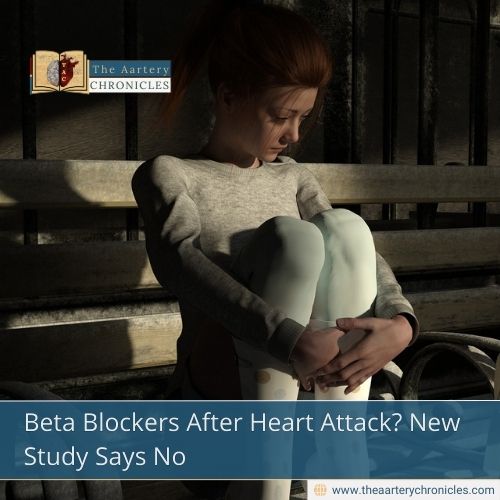

Beta Blockers After Heart Attack? New Study Says No
A new international study suggests that beta blockers and heart attack patients may not always be the right combination, especially for women. For more than 40 years, beta blockers have been a standard prescription after a heart attack. However, the latest findings from the REBOOT Trial challenge this long-standing practice.
Researchers discovered that for patients who had an uncomplicated heart attack with preserved heart function, beta blockers did not improve survival or reduce the risk of future complications. Surprisingly, women taking these drugs were found to have worse outcomes than those who did not.
What Are Beta Blockers and Why Were They Used?
Beta blockers are medications commonly prescribed for conditions such as high blood pressure, arrhythmias, and heart failure. After a heart attack, they have long been given to patients because they reduce strain on the heart by lowering heart rate and blood pressure.
In the past, these drugs significantly improved survival rates by reducing the risk of dangerous arrhythmias and further heart damage. But with modern treatments like rapidly reopening blocked arteries, the extent of damage after a heart attack is often much smaller. This raised the question: Do beta blockers still provide real benefits today?
The REBOOT Trial: A Game-Changing Study
The REBOOT Trial, led by Dr. Valentin Fuster of Mount Sinai and the Centro Nacional de Investigaciones Cardiovasculares (CNIC), is the largest study ever conducted on this topic. More than 8,500 patients across Spain and Italy were enrolled, all of whom had suffered a heart attack but retained normal heart function.
Patients were randomly assigned to receive either beta blockers or no beta blockers, while continuing to receive all other standard treatments. They were followed for nearly four years.
The results showed no significant difference between the two groups in terms of death, recurrent heart attacks, or hospitalisation for heart failure. This suggests that beta blockers may no longer provide added benefits for this group of patients.
Women at Higher Risk
A key finding of the REBOOT substudy was that women had worse outcomes when treated with beta blockers. Women taking the drug had a 2.7% higher risk of death, repeat heart attack, or hospitalisation for heart failure compared to women not on beta blockers.
Interestingly, this risk increase was only seen in women with completely normal heart function (a left ventricular ejection fraction of 50% or higher). Women with even mild impairment of heart function did not show this higher risk. Men in the study did not experience the same negative effects.
Why Does This Matter?
Currently, more than 80% of heart attack patients worldwide are discharged from the hospital with a prescription for beta blockers. If these findings are incorporated into clinical guidelines, prescribing practices could undergo significant changes.
By avoiding unnecessary medications, patients could benefit from fewer side effects, such as fatigue, low heart rate, or sexual dysfunction, while also reducing the burden of taking multiple drugs after a heart attack.
As lead investigator, Dr. Borja Ibáñez explains, “This trial was designed to improve patient care using solid evidence and without commercial interests. The findings will help streamline treatment and improve the quality of life for thousands of patients every year.”
Conclusion
The REBOOT Trial contributes to a growing body of research that questions older treatments in light of modern advances. Just as new drugs are constantly tested, this study highlights the importance of re-evaluating long-standing therapies to ensure they are still effective today.
With these results, the role of beta blockers and heart attack patients will likely be redefined, especially for women. International guidelines are expected to change, reshaping how doctors treat heart attack survivors in the years to come.
Source: Inputs from various media Sources
I’m a pharmacist with a strong background in health sciences. I hold a BSc from Delhi University and a pharmacy degree from PDM University. I write articles and daily health news while interviewing doctors to bring you the latest insights. In my free time, you’ll find me at the gym or lost in a sci-fi novel.
- Priya Bairagi
- Health News and Updates,People Forum
- 1 September 2025
- 09:00








